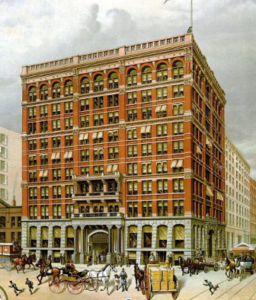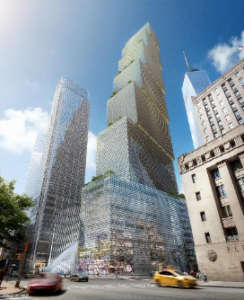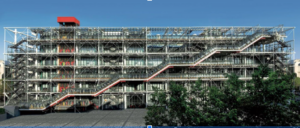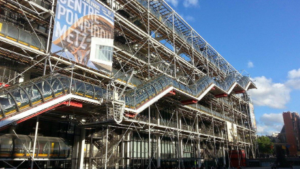20 Mar A History of Steel Buildings in the United States and Beyond
The steel building stands as an enduring symbol of modernity and progress, shaping the skylines of cities across the globe. From the grandeur of the Empire State Building to the sleek lines of the Burj Khalifa, steel structures have defined architectural innovation and engineering prowess. The history of steel buildings is not merely a narrative of construction techniques; it is a testament to human ingenuity and ambition. Let us explore the evolution of steel buildings in the United States and around the world.


Burj Khalifa, Dubai The Empire State, New York City
The Rise of Steel in Construction: Before steel, construction primarily relied on materials like wood, stone, and brick. However, with the advent of the Industrial Revolution in the late 18th century, steel emerged as a revolutionary material. Its strength, durability, and versatility transformed architectural possibilities. The development of the Bessemer process in the mid-19th century, which allowed for mass production of steel, further accelerated its adoption in construction.
United States: Pioneering Steel Skyscrapers: The United States played a pivotal role in the development of steel buildings, particularly skyscrapers. The iconic Home Insurance Building, completed in Chicago in 1885, is often considered the first skyscraper with a steel frame. Designed by William Le Baron Jenney, its steel skeleton allowed for unprecedented height and stability.
Home Insurance Building, Chicago
The early 20th century witnessed a flurry of steel-framed skyscrapers, including the Woolworth Building in New York City (1913) and the Chrysler Building (1930). However, it was the completion of the Empire State Building in 1931 that epitomized the potential of steel in construction. Standing at 1,454 feet, it reigned as the tallest building in the world for nearly 40 years, showcasing the engineering prowess of the time.
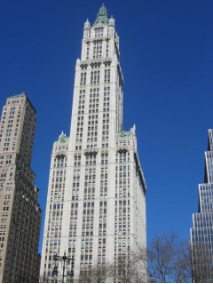
Woolworth Building, New York City Chrysler Building, New York City
Technological Advances and Global Expansion: Following World War II, advancements in steel production techniques, such as the introduction of electric arc furnaces and continuous casting, revolutionized the industry. This led to the development of even taller and more ambitious steel structures around the world.
In the latter half of the 20th century, the United States continued to push the boundaries of steel construction with landmarks like the Sears Tower (now Willis Tower) in Chicago and the World Trade Center towers in New York City.
Willis Tower, Chicago
World Trade Center Towers, New York City
Meanwhile, countries across Europe and Asia embraced steel as a primary construction material, giving rise to innovative designs like the Centre Pompidou in Paris and the Taipei 101 in Taiwan.
Centre Pompidou, Paris
Taipei 101, Taiwan
Sustainable Steel and Future Prospects: In the 21st century, sustainability has become a driving force in construction practices. Steel’s recyclability and low environmental impact have positioned it as a sustainable building material. Engineers and architects are exploring new ways to optimize steel structures for energy efficiency and resilience against natural disasters.
Moreover, technological advancements, such as Building Information Modeling (BIM) and digital fabrication, are revolutionizing the design and construction process, allowing for greater precision and cost-effectiveness in steel building projects.
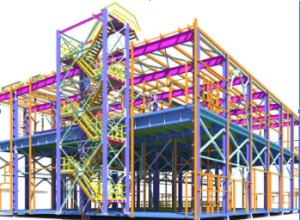
Conclusion: The history of steel buildings in the United States and around the world is a saga of innovation, ambition, and resilience. From the humble beginnings of steel-framed skyscrapers to the soaring heights of modern megastructures, steel has left an indelible mark on the architectural landscape. As we look to the future, steel remains at the forefront of construction, promising ever more daring and sustainable feats of engineering marvels.
In a world where innovation meets tradition, strength meets elegance, and where vision meets reality, Universal Steel of America’s team stands ready to bring your steel project to life. With a commitment to exceptional service, unparalleled expertise, and a dedication to crafting buildings that stand the test of time, we invite you to partner with us. Let us turn your dreams into steel, creating structures that not only inspire amazement today but endure as timeless monuments of human achievement for generations to come. Contact us now and let’s Imagine, Design, and Build your dream together, one steel beam at a time. Universal Steel of America, beaming the way! Contact us at universalsteel.com







